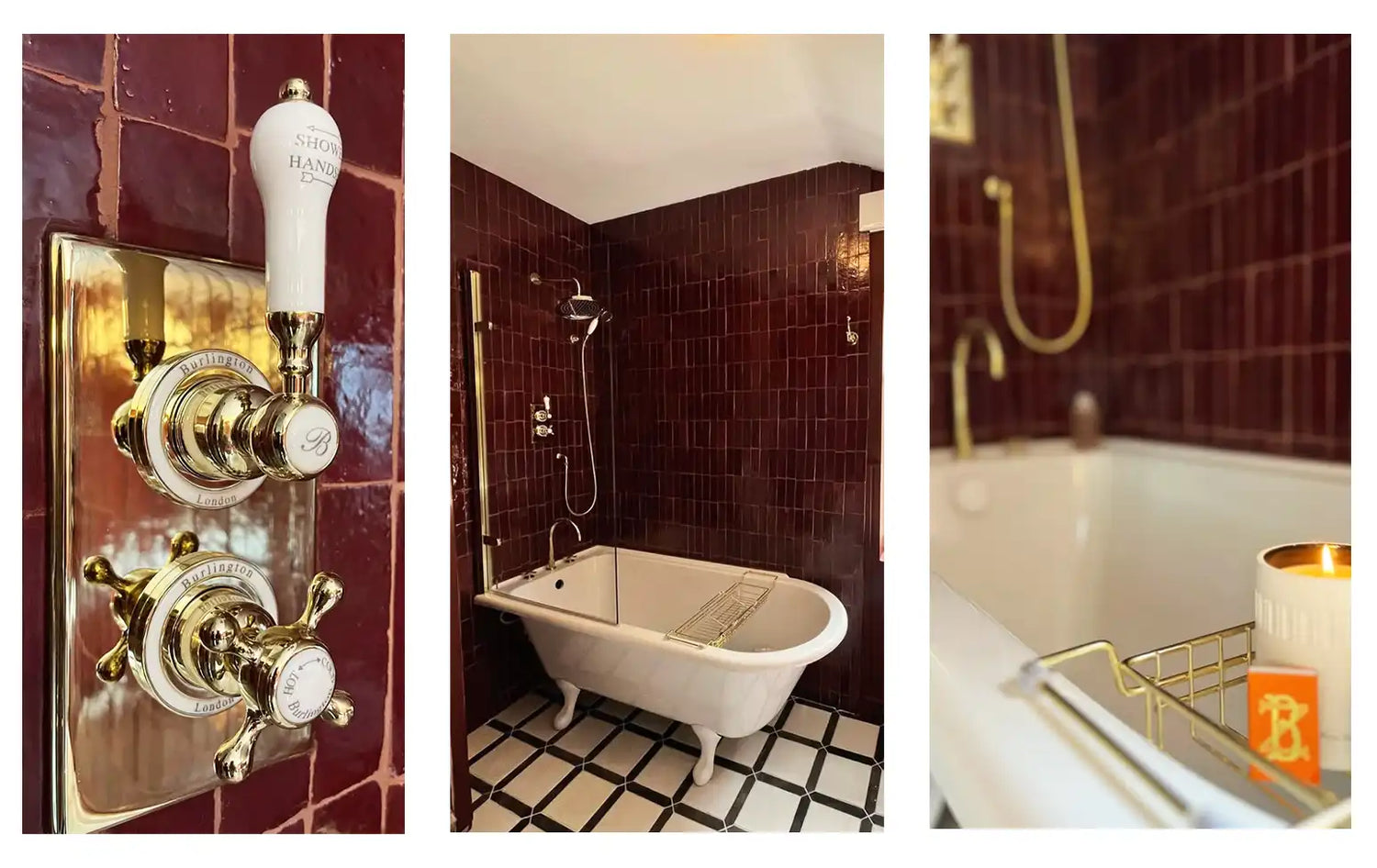At Terra Bella Interiors, every handmade Zellige and Bejmat tile begins its life as raw earth. Our skilled artisans in Morocco dig clay from the hills near Fez, where families have practised this craft for generations. They soak the clay in water, sift it by hand, and leave it to settle. This careful preparation creates a fine, workable material ready for shaping.

How Artisans Shape Handmade Zellige and Bejmat Tiles
Once the clay reaches the right consistency, artisans press it into wooden moulds by hand. They rely on years of experience and instinct rather than machines. This hands-on approach means no two tiles are ever identical.
Zellige tiles are thinner and more delicate. Craftsmen typically cut them into smaller shapes for walls and splashbacks. Bejmat tiles, on the other hand, are thicker and more robust. Designers often specify them for flooring or step treads where durability matters.

Sun Drying and Kiln Firing Process
After shaping, workers lay the tiles out under the Moroccan sun to dry naturally. This slow process allows the clay to cure evenly without warping. Rushing this stage would compromise the final quality, so patience is essential.
Once fully dry, artisans stack the tiles inside traditional kilns. They fire them using olive pits or wood, which creates natural variations in tone and finish. For Zellige tiles, craftsmen apply a glaze by hand to add depth and a subtle gloss. Bejmat tiles, however, often remain raw or receive only a light finish to highlight their earthy character.

Why Handmade Zellige and Bejmat Tiles Have Imperfections
You will notice irregular edges, gentle colour shifts, and varied surface textures across our tiles. These characteristics are not flaws. Instead, they are signatures of genuine craftsmanship that distinguish handmade tiles from mass produced alternatives.
At Terra Bella Interiors, we celebrate these details. Our team inspects every tile, sorts each one by hand, and packs them with care. We believe this level of attention brings warmth and authenticity to any space.

A Tile Making Tradition That Spans Centuries
The craft of making Zellige tiles dates back to the 10th century in Morocco, where artisans developed techniques still used today. According to UNESCO, the medina of Fez remains a living centre for traditional crafts, including tile making.
Whether you are creating a splashback in a London kitchen or laying a hallway floor in a country cottage, handmade Zellige and Bejmat tiles bring character and story to your home. They are tiles meant to be lived with, full of light, texture, and quiet elegance.






